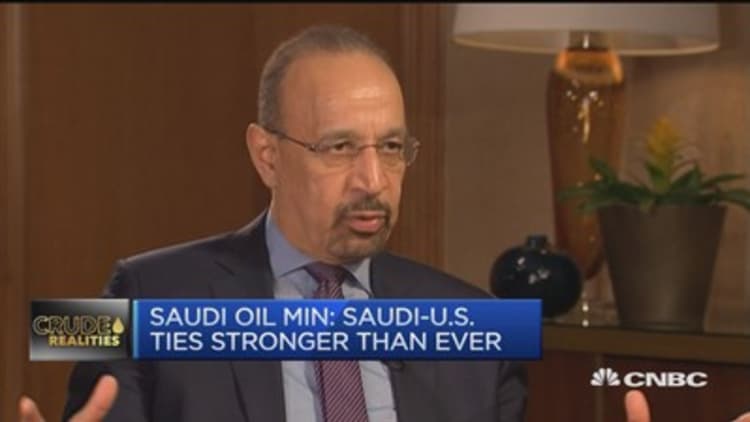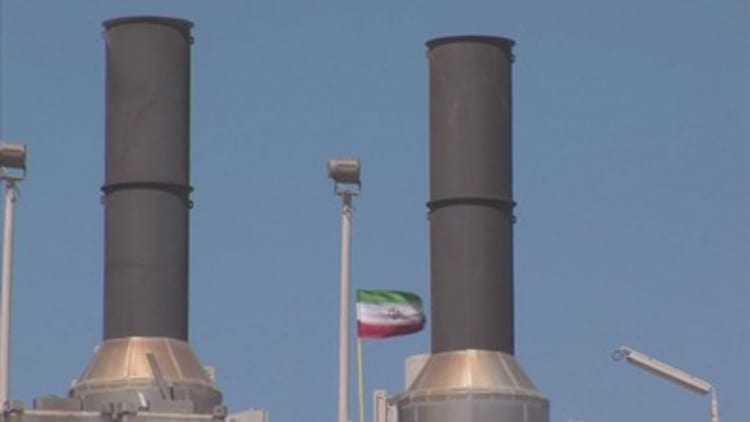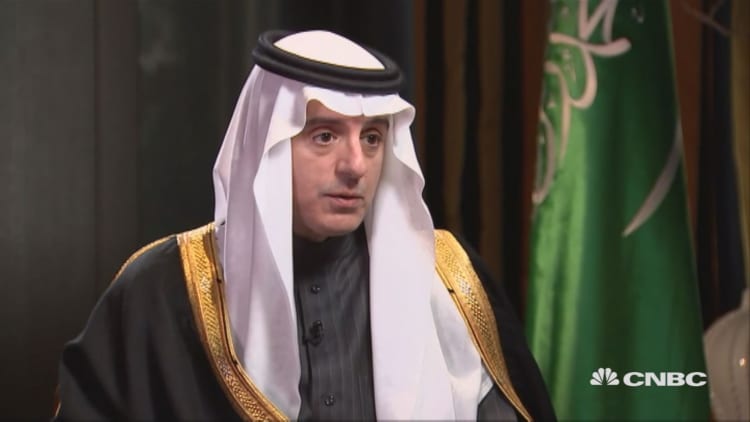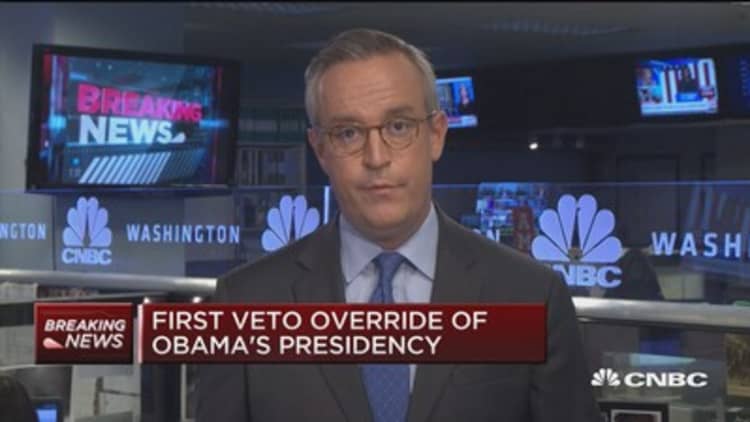
Saudi Energy Minister Khalid Al-Falih on Thursday said relations between his country and the United States have never been better, and the two nations are fully aligned in confronting Iranian aggression.
The minister made his remarks during a visit to Washington with Deputy Crown Prince Mohammed bin Salman, the young and highly influential royal at the helm of Saudi Arabia's economic diversification and military.
Falih said the visit solidified the importance of the U.S.-Saudi relationship, which he called one of the most central to global stability.
"It has brought it to yet a higher level than it has ever been, and there is alignment on all of the major issues between the two governments, and it's been, I think, further helped by the personal bond that was created between his royal highness, the deputy crown prince, and President Trump," said Falih, who also serves as chairman of state oil giant Saudi Aramco.

Falih's comments mark a turning of the page after a rocky relationship between the kingdom and the Obama administration, which negotiated a historic multilateral deal with Iran, Saudi Arabia's chief geopolitical rival in the Middle East.
President Donald Trump wasted little time ratcheting up pressure on Iran. His administration put Iran "on notice" shortly after he entered the White House and imposed additional sanctions on entities involved in Tehran's ballistic missile program.
While Obama kept economic pressure on Iran, his administration ultimately worked out a deal with five other nations that lifted international sanctions on Tehran in exchange for Iranian leaders accepting limits on their nuclear program. That allowed Iran to sell its vast oil supplies more freely and solicit investment in its energy industry, increasing competition with top oil exporter Saudi Arabia.
Obama and the Saudis also butted heads over Riyadh's military campaign in neighboring Yemen. The United States limited military support for the Saudi-led coalition due to Washington's concerns about high civilian casualties and humanitarian crises touched off by the conflict, Reuters reported.

Falih admitted the relationship had recently experienced "challenges."
"Well, I think the relationship had its challenges the last few years — Middle East issues in general, but specifically Iran was an issue where we differed with the Obama administration," he said.
"That has been removed because, as I mentioned, the leadership of the two sides see eye to eye in terms of addressing Iranian aggression and intervention in regional affairs, and that's one where there is 100 percent alignment."
U.S. Defense Secretary James Mattis said he and Salman had discussed fighting the Islamic State and "confronting Iran's destabilizing regional activities" during a meeting Thursday, according to Reuters.
Riyadh and the administration are on the same page in fighting the Islamic State, also known as ISIS, and "going beyond ISIS to the sources of terror around the world," Falih said.
Saudi investment in United States
The U.S.-Saudi relationship also came under pressure from a bill that would allow families of American citizens killed in domestic terror attacks to sue Saudi Arabia. Most of the Sept. 11 attackers were citizens of Saudi Arabia and there are lingering suspicions that some Saudi officials had a hand in the plot.
Saudi Arabia threatened massive divestment from the United States if the effort succeeded. Congress passed the bill last year, overriding Obama's veto, but this week's meetings included talk of new Saudi financial commitments.

Falih reiterated Saudi Arabia's interest in investing in U.S. infrastructure, a pillar of Trump's agenda. The president has backed Saudi plans to make investments into the United States that could total $200 billion, the Financial Times reported.
"The infrastructure program of President Trump and his administration is something that we're interested in because it broadens our portfolio and it opens a new channel for secure, low-risk yet healthy return investments that we seek," he said.
Saudi Arabia estimates it has invested $1 trillion in the United States, including government and central bank holdings and investments by state-controlled entities like Saudi Aramco and Sabic, a manufacturing and petrochemicals firm.



